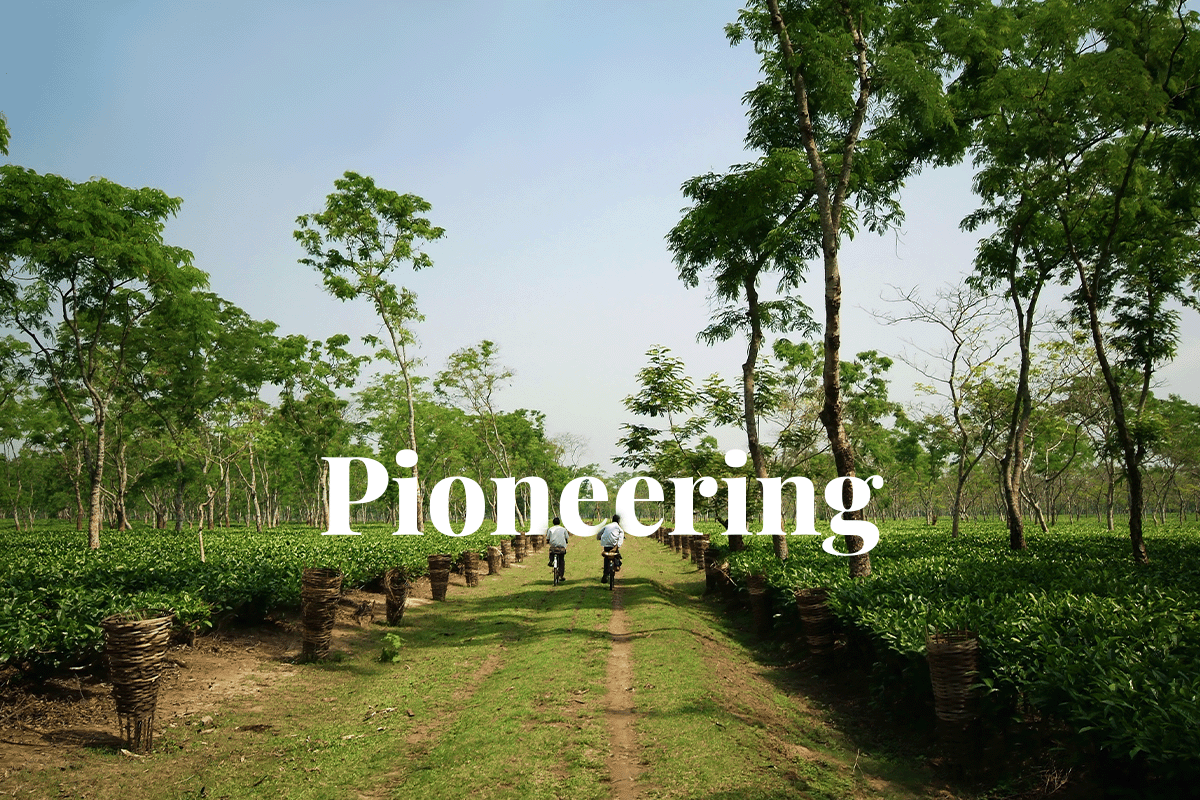Uttar Pradesh, India, is pioneering a groundbreaking agroforestry policy that would be a first in the country. The policy promises to significantly boost farmers' income by harnessing the potential of carbon credits generated by the species planted on the boundaries of their farmland.
 View on two workers in a tea garden, India.
View on two workers in a tea garden, India.
The core objective of this pioneering policy is to align farming practices with the global carbon credit market, creating a new stream of revenue for farmers while simultaneously contributing to the state's green cover. Currently, Uttar Pradesh's green cover stands at 9.23%, and the state aims to elevate it to an ambitious 15% by 2027.
Read more: Agroforestry project in Norfolk aims to lower the carbon footprint of food production
Arun Kumar Saxena, the state's forest and environment minister, has stressed the pivotal role that farmers play in achieving this ecological transformation. The saplings strategically positioned along field perimeters are integral to the success of this endeavour. The government's agroforestry policy is designed to simplify the process for farmers and provide them with essential financial support, making it an attractive and viable option for sustainable agriculture.
Agroforestry, as championed by this policy, promotes carbon-neutral growth. The carbon credits obtained through agroforestry activities are assessed and valued based on their societal and environmental impact. These credits adhere to the 'polluter pays' principle, meaning that industries emitting carbon emissions must purchase these credits to offset their emissions.
Read more: The benefits of trees in agroforestry
The calculation of carbon credits is contingent on the amount of carbon dioxide or other gases sequestered or absorbed through plantations. To incentivise farmers, the policy ensures financial support for planting saplings and maintaining them until they reach maturity. Moreover, it guarantees the quality of the plants provided to farmers, ensuring a profitable yield.
Key to the initiative is the selection of saplings with vertical growth patterns, optimising sunlight for crops and minimising shade. Currently, six carbon credits can fetch up to one dollar in return, making this an economically viable and ecologically responsible choice for farmers.
DGB Group is dedicated to initiatives that bring about positive outcomes for both the environment and local communities. We are committed to implementing solutions that benefit all stakeholders. Our extensive projects are carefully crafted to yield sustainable, long-term benefits. Our projects encompass a range of sustainable land management strategies, including agroforestry, agroecology, and regenerative agriculture, ensuring ongoing advantages for both the community and the environment.
Join the green revolution with DGB



